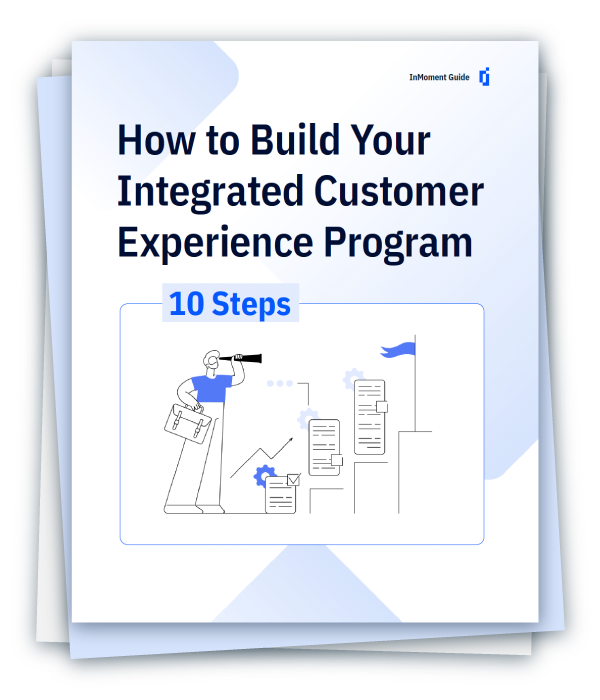The Importance of Employee Loyalty in the Workplace

We all know that employee loyalty is important, but oftentimes we forget how employee loyalty is connected with customer loyalty and how loyal employees contribute to the success of the entire business.
What Is Employee Loyalty?
Employee loyalty refers to the dedication, commitment, and allegiance exhibited by employees towards their organization, resulting in long-term engagement, productivity, and a willingness to go above and beyond in their work.
Why Is Employee Loyalty Important?
Employee loyalty is crucial in the workplace as it fosters a sense of stability, trust, and mutual benefit between employees and the organization. Loyal employees are more engaged, productive, and committed to achieving organizational goals. They contribute to a positive work culture, enhance team collaboration, and are less likely to seek opportunities elsewhere, reducing turnover costs. Moreover, loyal employees become brand advocates, attracting top talent and positively influencing the organization’s reputation and success.
How Leadership Impacts Employee Loyalty
There is a strong relationship between employee satisfaction and employee loyalty. There is also a strong connection between employee loyalty and customer loyalty and, ultimately, profitability. So what is the secret to fostering employee loyalty and preventing employee turnover? Effective leadership.
A staggering 79% of employees who decide to part ways with an organization cite a lack of appreciation as their primary reason for departure. This emphasizes the pivotal role leadership plays in acknowledging and valuing the contributions of its workforce. When employees feel seen, recognized, and appreciated, it fosters a sense of belonging and loyalty that transcends beyond mere job satisfaction.
Leaders who make a concerted effort to express gratitude and recognize the efforts of their team not only boost morale but also contribute significantly to the establishment of a loyal and committed workforce. Regular acknowledgment of achievements, both big and small, builds a positive work culture where employees feel their contributions are integral to the success of the organization.
Investing in Employee Development
Equally noteworthy is that a substantial 94% of employees express a willingness to stay with a company that actively invests in their professional development. This statistic underscores the importance of leadership in shaping a workplace environment that not only recognizes the potential of its employees but actively seeks to enhance and nurture their skills.
Effective leaders understand that supporting employee growth is a two-fold benefit. It not only equips the workforce with the tools needed for personal and professional advancement but also demonstrates a commitment to their long-term success. This commitment, in turn, fosters a deep sense of loyalty among employees, as they perceive their employer as a partner in their career journey.
Factors That Influence Employee Loyalty
- Organizational culture and values
- Leadership and management practices
- Career development and growth opportunities
- Recognition and rewards programs
- Work-life balance initiatives
- Employee well-being and support
8 Tips for Fostering Employee Loyalty
These tips, which are drawn largely from the experience of customer service reps (CSRs), are meant to serve as a comprehensive guide for organizations seeking to not only retain their valuable workforce but to cultivate a workplace environment where loyalty is not just an expectation but a natural outcome of thoughtful leadership and employee-centric practices.
1. Cultivate a Culture of Appreciation
Showcasing gratitude and recognizing the contributions of employees is foundational to building loyalty. Regularly acknowledge individual and team achievements, whether through formal recognition programs, team meetings, or personalized messages. A culture of appreciation makes employees feel valued and integral to the organization’s success.
2. Ensure Effective Onboarding
Investing in a thorough and effective onboarding process significantly influences how long an employee remains with the company. A well-structured onboarding program goes beyond introducing new hires to the basics; it immerses them in the organizational culture, values, and expectations. Clear communication about roles, responsibilities, and the broader mission of the company during the onboarding phase sets a positive tone for the employee’s journey.
3. Invest in Professional Development
Demonstrate a commitment to the growth and advancement of your employees by investing in ongoing training and development opportunities. This not only enhances their skills but also communicates that the organization is dedicated to their long-term success. Employee loyalty often flourishes when individuals see their careers evolving within the company.
4. Provide a Clear Path for Career Progression
Outline transparent career paths and advancement opportunities within the organization. When employees can see a future where their contributions lead to meaningful career progression, they are more likely to stay committed. Regularly communicate about potential career trajectories and provide guidance on skill development aligned with organizational goals.
5. Foster Open and Transparent Communication
Create an environment where communication flows freely between leadership and employees. Address concerns promptly, provide constructive feedback, and encourage an open dialogue. Transparent communication builds trust, a crucial element in fostering loyalty, as employees feel informed and included in the decision-making process.
6. Offer Work-Life Balance Initiatives
Recognize the importance of work-life balance and implement initiatives that support it. Flexible work hours, remote work options, and policies that respect personal time contribute to employee satisfaction. By promoting a healthy work-life balance, organizations not only enhance loyalty but also contribute to employee well-being and overall job satisfaction.
7. Recognize and Address Burnout
Proactively identify signs of burnout and implement strategies to mitigate its impact. Burnout can erode loyalty and productivity. Encourage employees to take breaks, use their vacation time, and establish boundaries. Implement wellness programs and provide resources to manage stress. Addressing burnout demonstrates a commitment to the health and happiness of your workforce.
8. Offer Perks and Incentives
Provide enticing perks and incentives that go beyond standard compensation. This could include wellness programs, travel discounts, recognition events, or even unique benefits tailored to your workforce. Such offerings not only enhance the overall employee experience but also contribute to a positive and loyal work environment.
Remember, these tips are interconnected, and implementing them collectively can create a robust foundation for fostering lasting employee loyalty. Tailor these strategies to fit the unique dynamics of your organization, and consistently reassess and adapt them as your workforce evolves.
Fostering Loyalty with An Employee Loyalty Program
In the pursuit of fostering a workplace culture that prioritizes employee satisfaction and longevity, organizations are increasingly turning to Employee Loyalty Programs. These initiatives go beyond traditional employee recognition strategies, offering a structured framework designed to acknowledge, reward, and retain valuable talent. Let’s explore the compelling benefits of implementing such programs and highlight some noteworthy examples.
Benefits of Employee Loyalty Programs
Employee loyalty programs can have numerous benefits that range from increased engagement to completely changing company culture.
Enhanced Employee Engagement
Employee Loyalty Programs serve as catalysts for heightened engagement. By recognizing and rewarding employees for their contributions, these programs instill a sense of pride and ownership, fostering a positive and motivated workforce.
Increased Retention Rates
Retaining skilled and experienced employees is a perpetual challenge for many organizations. Loyalty programs create a bond between the employee and the company, reducing turnover rates and the associated costs of recruitment and training.
Boosted Morale and Job Satisfaction
Acknowledgment and rewards contribute significantly to job satisfaction. Loyalty programs elevate morale by demonstrating that the organization values the efforts and dedication of its workforce, resulting in a more content and committed team.
Improved Productivity and Performance
Motivated employees are more likely to go above and beyond in their roles. Loyalty programs act as incentives, inspiring employees to excel in their responsibilities and contribute actively to the overall success of the organization.
Positive Impact on Company Culture
A well-designed loyalty program becomes an integral part of the company culture, emphasizing the importance of loyalty, collaboration, and mutual appreciation. This cultural shift promotes a harmonious work environment and strengthens the employer-employee relationship.
Employee Loyalty Program Examples
Employee loyalty programs can take many forms. Depending on the purpose and structure of your organization, there are many different types of programs that you might find success with.
Recognition and Rewards Platform
Many companies utilize online platforms that allow peers and managers to publicly recognize and reward employees for their achievements. These platforms often offer a variety of rewards, such as gift cards, vouchers, or even personalized experiences.
Professional Development Opportunities
Some loyalty programs focus on the long-term growth of employees by providing access to training programs, workshops, and certifications. Investing in the professional development of employees not only enhances their skills but also reinforces their commitment to the organization.
Flexible Work Arrangements
Recognizing the evolving needs of the workforce, some loyalty programs offer flexibility in work arrangements, such as remote work options, flexible hours, or compressed workweeks. These initiatives demonstrate an understanding of work-life balance and contribute to employee satisfaction.
Wellness Programs
Employee well-being is a key aspect of loyalty programs. Organizations may offer wellness programs that include gym memberships, health screenings, mental health resources, or even on-site fitness facilities. Prioritizing employee health contributes to a positive and caring workplace culture.
Service Milestone Celebrations
Recognizing employees for their long-term commitment through service milestone celebrations is a classic loyalty program approach. This can involve personalized gifts, public acknowledgments, or special events to commemorate significant anniversaries with the company.
Employee loyalty programs represent a strategic investment in the overall success and sustainability of an organization. By implementing these programs, companies not only retain valuable talent but also create a workplace where dedication, engagement, and mutual appreciation thrive.
Increase Your Employee Loyalty with InMoment
InMoment client alphaborder was able to increase their employee loyalty by 10% year-over-year utilizing tools such as Moments. Your organization can see similar success. Schedule a demo to see how we can help you increase your employee loyalty!
References
The Hill. Only 21% of U.S. Employees Trust The Leadership At Work (https://thehill.com/lobbying/4001575-only-21-of-u-s-employees-trust-the-leadership-at-work/) Access 12/4/23.
Zippia. 20+ VITAL EMPLOYEE LOYALTY STATISTICS [2023]: ENGAGEMENT TRENDS + DATA (https://www.zippia.com/advice/employee-loyalty-statistics/) Access 12/5/23.





